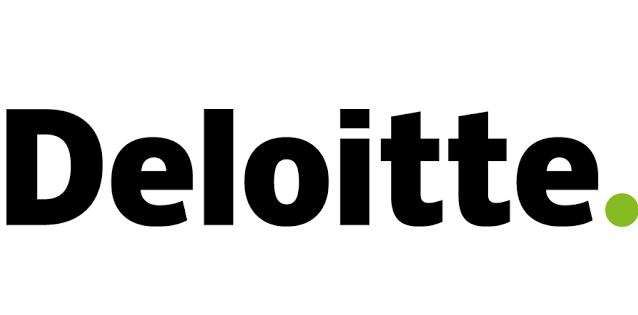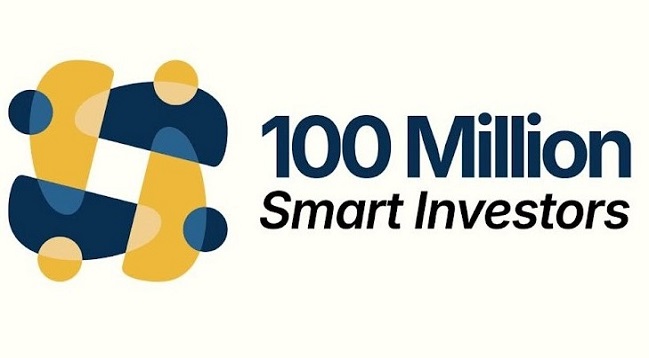E-Financial
Deloitte, Heritage Bank, PWC Urge Internal Auditors to Embrace IT to Tackle Fraud

Deloite, Heritage Bank Plc and PricewaterhouseCoopers’ (PWC’s) have urged internal auditors of banks to adopt the various digital technologies to prevent fraud and annul the adverse impact of Covid-19 on the financial ecosystem.

Speaking at the just concluded 47th Quarterly Meeting of the Association of Chief Audit Executives of Banks in Nigeria (ACAEBIN), Ifie Sekibo, the MD/CEO of Heritage Bank, disclosed that for improved banking operations and safer financial system for stakeholders, internal auditors must be dynamic and quick to adopt various digital measures.
Raising the alarming impact of fraudulent activities in the banking sector, Sekibo quoted PricewaterhouseCoopers’ (PWC’s) Global Economic Crime and Fraud Survey 2020, revealing that that the total cost of cybercrimes is worth an eye-watering $42 billion, which was cash taken straight off companies’ bottom line, whilst 13% of those who had experienced fraud said they had lost $50 million-plus.
Sekibo, who spoke on the theme, “Elevating Internal Audit’s Role in the Face of Emerging Risks and Opportunities” organised virtually and hosted by the Heritage Bank, urged, “While it was sufficient for yesterday’s auditor to understand regular and routine banking practices such as credit, treasury, etc in his traditional assurance role, for him to be relevant in harnessing the opportunities in today’s business world, he must become versed in cybersecurity, artificial intelligence, data analytics, fraud management, regulatory pronouncements, forensics etc and having equipped himself, present balanced, objective audit reports to Executive Management while striking the right balance between the assurance and consulting responsibilities.”
In her keynote address, titled, “Elevating Internal Audit Role In The Face Of Emerging Risks and Opportunities,” Ibukun Beecroft, Partner Risk Advisory at Deloitte, noted that the banking industry in Nigeria today has adopted various digital measures to keep the business running and delivering services to the customers but there was need for Internal Audit (IA) positioned to provide the required assurance and consulting services in the face of the changes and attendant risk, particularly increased cyber-risks.
Quoting 2018 Financial Stability Report by the Central Bank of Nigeria, she stated that Banks recorded 25,029 confirmed cases of fraud and this resulted in a loss of N2.21 billion. More than 90% of fraud cases in 2018 were perpetrated via technologically driven channels.
“As Internal Auditors, the knowledge of technology would enable us identify gaps in our core banking applications and other applications and provide relevant recommendations to eliminating loopholes that may serve as an avenue for potential fraud.
She, however, advised auditors on the need to focus on advanced technologies and risk management operations as reflected around the Three Lines of Defense (3LOD) churned out by the Institute of Internal Auditors, which create opportunities for IA and its future role.
Beecroft warned that the ever-changing landscape and evolving risks in the banking industry could render the current internal audit plan obsolete.
According to her, internal auditors should reprioritise the audit plan as soon as possible to provide assurance over the most consequential risks while being cognisant of the impact on operations.
“To take advantage of these changes and disruptions, auditors need to rethink their role by adapting to and embracing change, enabling the IA function to become more agile, nimble, and forward-looking, thus driving change through the 3LOD,” Beecroft stated.
Yetunde Oladeji, Director Internal Audit Services at PricewaterhouseCoopers Limited (PWC), who spoke on the theme, “Elevating IA’s role to meet today’s emerging risks,” advised that the banking sector should be dynamic, prioritse digitization and flexibible workforce strategies as these would determine its ability to adapt to rapidly changing circumstances to survive and thrive.
E-Financial
First Asset Management Launches National Initiative to Raise 100m Investment-Smart Nigerians

First Asset Management, one of Nigeria’s leading investment managers and a subsidiary of FirstHoldCo Plc, launches the 100 million Smart Inventors campaign.

Nigeria’s investment market has huge potential, yet it remains underutilised due to widespread distrust, misinformation, and past losses suffered through fraudulent schemes. Trillions of Naira have been lost, leaving many Nigerians fearful and excluded from real, rewarding investments and leaving them on the economic sidelines.
Reports show that less than 5% of adult Nigerians currently participate in the formal capital market, and as low as 0.25% invest in Mutual Funds, a stark contrast to participation rates often exceeding 50% in developed economies like the United States. This highlights the urgent need to restore trust and improve access to credible investment education.
In response to this critical challenge, First Asset Management has announced the launch of a landmark national movement, the “100 million Smart Investors Initiative”. The campaign is positioned as a direct strategy to rebuild investor confidence and democratise financial knowledge across the nation.
According to the firm, the initiative was conceived from the need to address the anxieties that have historically prevented countless Nigerians from participating in real wealth-building investments. Drawing on its track record of trust and market expertise, First Asset aims to cultivate a new generation of informed, confident investors.
At the heart of the initiative is a comprehensive investor education programme. The goal is to transform casual interest in investing into active participation within a supportive, well-informed community.
Beyond expanding investor numbers, the movement seeks to improve the quality of investment decisions by equipping individuals with the tools to evaluate opportunities and avoid fraudulent platforms.
For everyday Nigerians, the initiative promises simplified, practical financial education that demystifies investing. By building a strong peer network through a nationwide community platform, it seeks to reduce the isolation often faced by new investors and promote collective financial empowerment.
Ultimately, the 100 Million Smart Investors movement represents a significant investment in Nigeria’s human capital. By providing actionable steps, success stories, and sustained education, First Asset Management aims to usher in a new era of financial literacy and participation.
This initiative would not only enhance the financial well-being of individuals and families but also contribute to the broader economic prosperity of the nation by channelling dormant capital into productive sectors of the economy.
To kickstart this bold quest, the brand has planned a series of free educational bootcamps, podcasts and community engagement with industry experts and leaders. The inaugural event will take place live on 26 July 2025.
Follow @FirstAssetManagement on all social media handles to stay informed and visit https://first-assetmanagement.com/smart-investors for details on how to join the movement.
E-Financial
PalmPay Named Among CNBC and Statista’s World Top 300 Fintech Companies 2025

PalmPay, a leading neobank and fintech platform focused on emerging markets, has been recognised in CNBC and Statista’s 2025 Top 300 Fintech Companies in the World list. This marks the second year in a row that PalmPay has earned a place among the world’s most innovative and impactful financial technology firms.

The selection is based on a rigorous evaluation of thousands of companies globally, assessing growth, innovation, market penetration, and impact. This year’s list includes a mix of global leaders – including Revolut, Nubank and Ant Group – alongside rising stars from high-growth markets, underscoring the growing influence of emerging-market fintechs like PalmPay.
PalmPay’s inclusion reflects its continued momentum as one of Africa’s leading fintech platforms. With over 35 million registered users and up to 15 million transactions processed daily, the company offers a comprehensive suite of digital financial services tailored to the needs of underserved communities.
In its main market, Nigeria, PalmPay operates as a full-service neobank, offering consumer financial services such as transfers, bill payments, credit, savings, and insurance – all accessible through its user-friendly app and supported by a nationwide network of over 1 million agents and merchant partners. The company also provides POS and API-driven B2B solutions tailored to the needs of merchants and enterprise clients.
“To be recognised as one of the world’s top fintech companies by CNBC and Statista is a powerful affirmation of our mission to build a more inclusive financial system,” said Sofia Zab, Founding Chief Marketing Officer at PalmPay.
“Through cutting-edge technology, deep local distribution, and a customer-first mindset, we’ve built Nigeria’s leading neobank. As we scale PalmPay to more emerging markets, including Tanzania and Bangladesh, our focus remains on closing financial access gaps for everyday consumers and businesses, while expanding the partner ecosystem that fuels our reach and impact.”
As part of its broader expansion strategy, PalmPay recently launched in Tanzania and Bangladesh through a smartphone device financing model that serves as an entry point to digital financial services.
“PalmPay is building a neobanking platform tailored to the realities of emerging markets,” said Jiapei Yan, Group Chief Commercial Officer at PalmPay. “We are creating the infrastructure for a connected digital economy – where people and businesses can thrive through reliable, inclusive financial tools.
This recognition from CNBC and Statista affirms our progress and also the scale of the opportunity ahead. As we expand across more emerging markets, we are committed to creating lasting value for our users, partners, and the communities we serve.”
PalmPay’s inclusion follows another major recognition earlier this year: the company ranked #2 overall and #1 in the financial services sector on the Financial Times – Africa’s Fastest-Growing Companies 2025 list. The ranking, based on revenue growth between 2020 and 2023, highlighted PalmPay’s rapid scale and market traction across Africa.
PalmPay currently operates in Nigeria, Ghana, Tanzania, and Bangladesh, and is expanding its presence across Africa and Asia through device financing, digital banking, and B2B payment services. Backed by a robust neobanking platform and a partnership-led approach, the company is committed to shaping the next chapter of inclusive financial growth.
E-Financial
Fidelity Bank Champions Education in Nasarawa with CSR Project

Fidelity Bank Plc has reaffirmed its commitment to quality education and youth empowerment with the renovation of a classroom block and donation of textbooks to Aso Pada Government Secondary School in Karu LGA, Nasarawa State.

L-R: The Team Lead, CSR, Fidelity Bank Plc, Victoria Abuka; Vice Principal, Government Secondary School, Aso Pada, Maraba, Mr. Abdullahi Idris; Project Co-ordinator, Elite Bankers 2025 Inductee Class, Fidelity Bank Plc, Onyinyechi Ihesiaba; Vice Principal -Academics, Government Secondary School, Aso Pada, Maraba, Mr. Ela Isa; during the commissioning of a renovated block of classrooms and the distribution of Back-to-School Materials at Government Secondary School Aso Pada, Maraba, Nassarawa State recently.
The project was executed through the Fidelity Helping Hands Program (FHHP), a corporate social responsibility initiative that enables staff to identify community needs, raise funds, and receive matched support from the bank.
Speaking at the handover ceremony, Dr. Meksley Nwagboh, Divisional Head, Brand and Communications, said the school was chosen due to its impact on the local community and its lack of renovation in over 15 years.
Vice Principal Abdullahi Idris praised the bank’s gesture, calling it “an investment in the future of our nation,” and expressed hope for a lasting partnership.
The initiative follows Fidelity Bank’s recent donation of 1,000 solar-powered schoolbags to pupils across Ogun State, aimed at improving study conditions in areas with limited electricity.
Fidelity Bank serves over 9.1 million customers and has received multiple awards for innovation and SME support, including the 2024 Excellence in Digital Transformation Award and Best Bank for SMEs in Nigeria by Euromoney.

 News2 days ago
News2 days agoHCSF Describes Galaxy Backbone as a Strategic Partner in Civil Service Digitalization Reforms

 General News2 days ago
General News2 days agoMayor of London Commits to Deepening UK-Nigeria Ties in Tech, Creatives and Trade

 E-Financial2 days ago
E-Financial2 days agoPalmPay Named Among CNBC and Statista’s World Top 300 Fintech Companies 2025

 E-Financial2 days ago
E-Financial2 days agoFidelity Bank Champions Education in Nasarawa with CSR Project

 Telecom1 day ago
Telecom1 day agoOperators Seek Action Over Persistent Vandalization of Telecommunications Infrastructure Across Nigeria

 General News1 day ago
General News1 day agoFirstBank Celebrates ₦1 Trillion Milestone in Instant Loans via AI-Powered Platforms

 Telecom1 day ago
Telecom1 day agoMTN’s $150m Data Hub Gets Government Nod for Advancing Digital Economy

 Telecom1 day ago
Telecom1 day agoCritical Telecom Infrastructure Under Siege as Vandalism and Theft Rise – ALTON
























